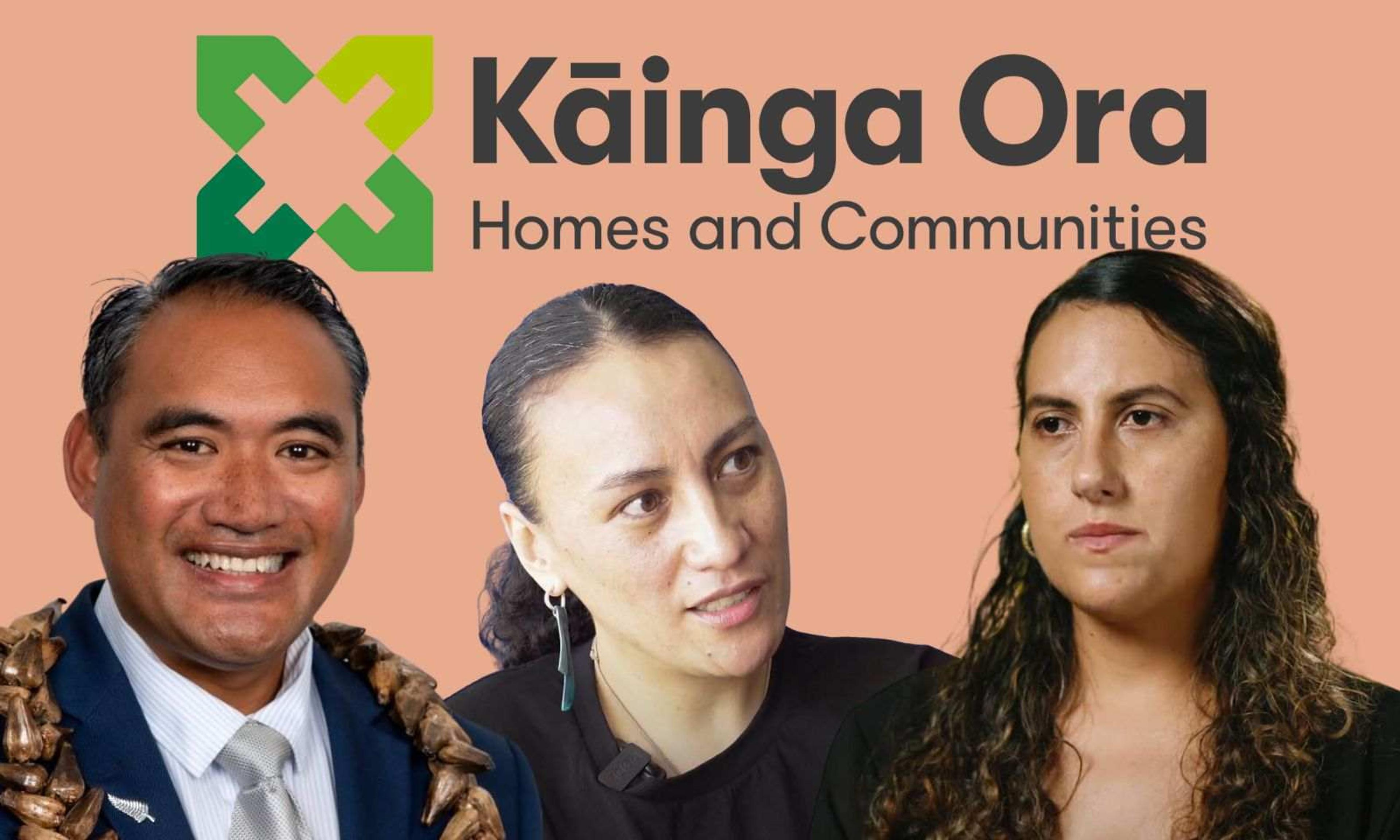

Taliaoa John Loau, Brooke Pao-Stanley and Lisa Meto Fox weigh in on Chris Bishop asking Kāinga Ora to deal more harshly with its tenants.
Photo/Policy NZ (Loau), PMN News (Pao-Stanley), Human Rights Commission (Fox)
Crackdown on unruly KO tenants faces strong criticism
A housing advocate, entrepreneur and anti-poverty advocate give their two cents on Housing minister's call to evict Kāinga Ora tenants.




Pacific People’s report: Employment rises but housing crisis hurts families




Pacific People’s report: Employment rises but housing crisis hurts families
A housing advocate says evicting Kāinga Ora tenants over late rent payments or bad behaviour will "make the situation worse".
Former union lawyer Lisa Meto Fox says most people living in public housing generally means they cannot afford to rent in the private market.
"Kicking them out will mean they're living in cars and on the streets," Fox says.
"We already have far too many people doing both of those things so I don't think kicking people out is the solution."
Housing Minister Chris Bishop announced this week that Kāinga Ora will end the Sustaining Tenancies Framework, which began as a trial in 2017 under the former National government's social investment strategy in reducing evictions.
The framework, which Labour continued, supports people whose public tenancy is at risk, with reasons ranging from paying rent, dealing with mental or physical health concerns, or risk factors like addiction or family violence.
It initially supported around 940 individuals and families in Auckland, Wellington and Christchurch, eventually expanding to a further 650 places between 2019 and 2020.
In a letter to Kāinga Ora, Bishop demanded the organisation take a tougher stance on unruly social housing tenants, claiming up to 355 serious complaints per month as unacceptable.
Speaking alongside Fox on 531pi's Pacific Mornings political panel, entrepreneur and commentator Taliaoa John Loau says he does not see an issue with Bishop setting expectations.
"Deal with these people as best as possible and you need to engage them more is what I heard.
"There are services that these people need and the only way Kāinga Ora is going to know that is if they engage these people as quickly as possible."
Watch the full political panel via 531pi's Facebook below:
Loau says that the responsibility of duty of care between landlords and tenants is a two-way street.
"I agree that there are some issues in services that people need.
"But people who are either living next to these disruptive people in Kāinga Ora homes, private renters and owners, the feeling is that Kāinga Ora isn't doing anything to address it."
However, Fox reiterates that the solution is not in evictions but instead it's about dealing with overcrowding, which particularly impacts the Pacific community, poverty and providing services for those suffering from mental health and addiction.
"We have a lot of what's called invisible homelessness, where multiple families live in one home which is extremely stressful."
Speaking with Levi Matautia-Morgan on Pacific Mornings on Wednesday, Auckland Action Against Poverty's Brooke Pao Stanley says cracking down on unruly Kāinga Ora tenants will "exacerbate persistent anti-social behaviour".
"Everyone exhibits this type of behaviour especially as a response to trauma," Pao says.
"Homelessness is going to get worse. There will be a lot more pressure on emergency and transitional housing spaces which are already overworked and overloaded.
"They're saying that they're trying to address this behavior but they're just going to make it worse."
Pao says ending the framework is a matter of financial motives rather than care for communities, where the interest lies within protecting a wealthy minority in Aotearoa.
"A lot of what they are doing is based on generating money or trying to save money for the communities that they purport to represent."
She says it is an attempt to preserve the value of properties surrounding Kāinga Ora homes as gentrification continues across Auckland which would affect house prices.
Watch the full interview with Pao via 531pi's Facebook page below:
Pao says rather than evicting tenants that long-term approaches focused on healing and supporting families without judgement are key.
She says poverty trauma plays a big role in this "complex" situation of disruptive Kāinga Ora tenants, and that the solution of healing trauma is further complicated as it is a long-term journey.
"It's making sure that the people offering these services are genuine, compassionate and don't have any prejudice.
"A lot of healing is required within families and that type of work is quite intimate, but families don't have the resources themselves."
She says not having enough food, secure housing, access to health care or public transport creates further stress and reduces time to address internal issues.
"We should be resourcing families to be able to make this work easier for them and if they need the extra support from organizations and frontline communities make it accessible without judgment."

